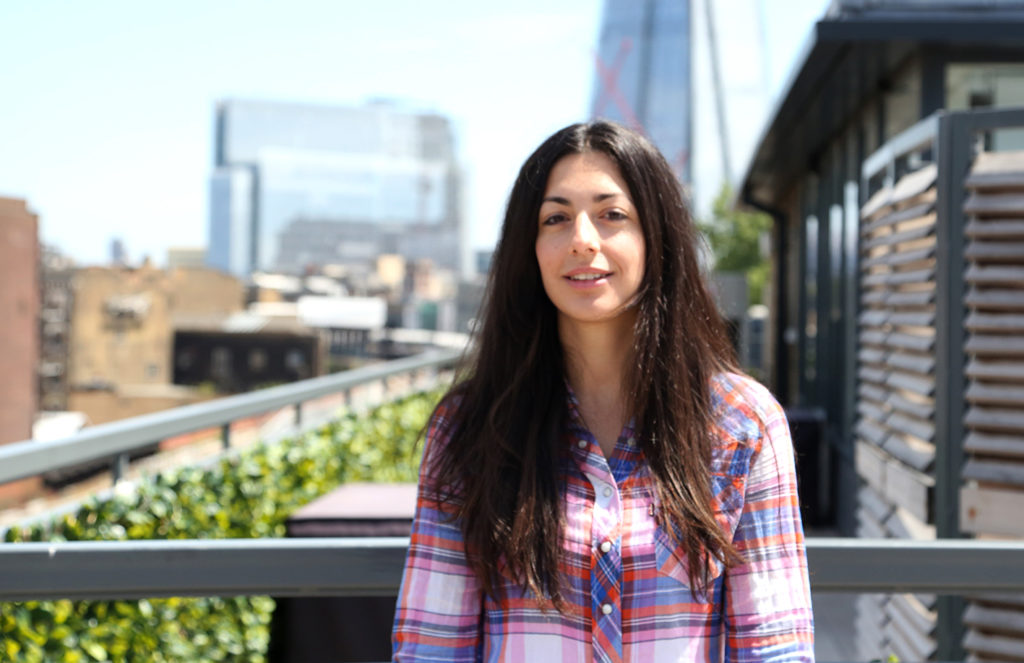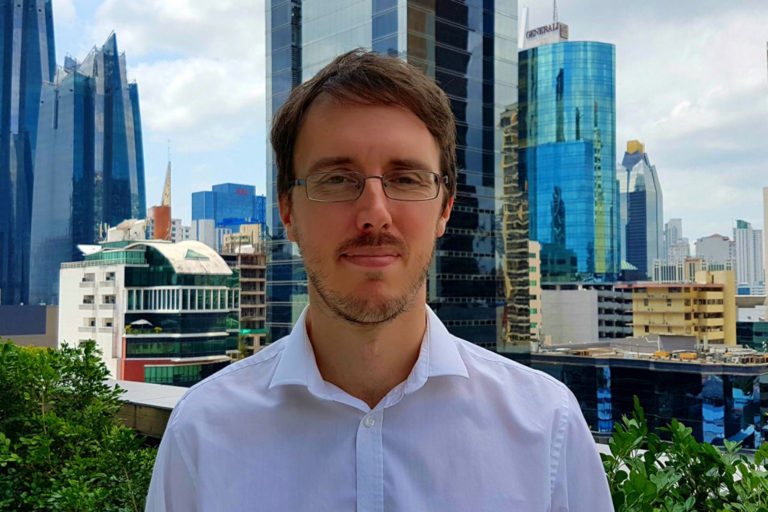Day in the life of Elena Koumpli, Head of Data Analysis and SCADA Manager

After working on research projects in academia for over 10 years, Elena joined Solarcentury and now leads our SCADA and Data Analysis teams, which focus on performance optimisation. We learn more about her and her role here…
What is your background and route into the company?
During my first degree in Applied Physics in Athens, I majored in nuclear physics but I soon realised it wasn’t the right industry for me, so after I graduated, I obtained a MSc in Renewable Energy Systems. In 2014, when I got the opportunity to do a PhD at CREST (Centre for Renewable Energy Systems Technology) in Loughborough, I didn’t hesitate to accept it.
After graduating from CREST in 2017, I immediately started working there as a research associate. I worked on a large project collecting data from rooftop solar panels, analysing and improving their performance, and investigating data quality.
After being in academia for over 10 years, I never imagined myself in industry. But the position at Solarcentury seemed like a great opportunity to advance my career while remaining in the renewable energy sector, so I made the jump. After a year in this role, I am very happy I made that decision.
What is your role?
I manage the SCADA and Data Analysis teams.
The aim of both teams is to ensure all processes run smoothly every day, whilst working towards longer-term targets.
This past year, I have been very focused on system performance optimisation. The team and I have been working from a plan and roadmap with specific milestones, which focuses on one very important thing: to make our solar plants perform better, increase our revenue and of course have greater impact in the fight against climate chaos.
My role is diverse, which is what makes it so interesting; from writing Python computer scripts, to reviewing contracts and financial figures with the team. I also try to keep some of the research aspect by bringing potential collaboration projects between our company and academic partners in the UK and Europe. I like solving problems.
What do your teams typically do?
The two teams are quite different when considering their day to day challenges and tasks, however they are two important parts of the same chain: from data acquisition to data analysis.
The SCADA team makes data acquisition possible, from the early design and commissioning of the plant to the end of its monitoring period.
Data Analysis, traditionally, is about collecting, storing and manipulating the vast amounts of data provided by the SCADA systems. This “clean” data is used for calculating the monthly performance metrics of the sites under our management. A fun fact about the Data Analysis team is that it’s 75% female, which is great – it’s inspiring to see more women working in energy.
How has the team evolved over the past year?
The Data Analysis team especially has achieved a massive change over the past year. The key word here is “team”; both in terms of resource but also, and most importantly, in terms of goal and ambition.
We have put a lot of work into minimising the reporting time. Although data engineering is still a crucial part, we have shifted our main focus from routine reporting to root-cause analysis of site-specific performance.
You can see the result of this work by looking at our Solarcentury Grafana pages. Grafana is a beautiful tool for data analytics and monitoring, which gathers data and information across several data sources, and dashboards show aspects of plant monitoring and reporting.
It’s now our main performance visualisation platform, yet a year ago, it wasn’t used at all and didn’t seem possible.
It has links to plant performance, from normal KPIs (performance ratio and availability) to more advanced performance features, to financial figures and scenarios and fault statistics across various periods of site operation.
How have all of these developments been received by our customers?
Our clients receive their reports faster, and we have changed part of our client facing reports to be more detailed and more visually interesting. More attention is now drawn to detecting and identifying faults and resolving them as soon as possible.

Is data your thing out of the workplace? How do you like to spend your free time?
Not really! I like swimming, travelling and going to heavy metal concerts. I also love coffee, so much so that I dream of having my own coffee shop one day, maybe next to a small farm – it would be great for people to enjoy a good cup of coffee and hang out with some animals!
Other than that, I like taking care of my plants, going for walks, cooking or simply chilling out after work.
You got involved with the climate strikes and demonstrations over the last few months. Why?
The first climate march I attended was right ahead of the Paris agreement. I was surprised then by the number of people who came out on the streets to show support. Then the conversation increased exponentially, and the numbers at the September youth strikes were huge. It was amazing to see the millions of people there and to see so many out for the Extinction Rebellion strike. The movement is growing, and I hope we are making a difference. It’s certain it’s made more people think about the climate emergency we are in.
Back home, people don’t know much about XR and climate chaos in general. I recently explained what’s happening in the world to my young nieces and nephew, because it’s their generation who will be affected. It’s important to educate people – they want to know; we have to teach them.

Do you miss research?
Yes, I generally do but I try to keep the link alive with research institutes across the world. Jan Muller (my manager) has been very encouraging. I feel strongly that academia and industry working together is the way to solve the climate crisis.
On personal note, my friends moved to different places after their PhD, but now I have the chance to work with them in projects that will also benefit Solarcentury.
What’s your favourite thing about working for Solarcentury?
It’s mostly the people. I work within excellent teams but also great people in the wider team, which is very motivating. I like seeing people getting excited about doing stuff. We start with what we CAN do, then we follow a plan, and we somehow end up doing the impossible. Isn’t that great?
I wouldn’t change anything, except maybe I’d like to have more time to do more. An extra day in my life would be useful! Or one more of me…
Read more from our day in the life series here.
If you’re interested in joining our team at Solarcentury, view our vacancies here.


